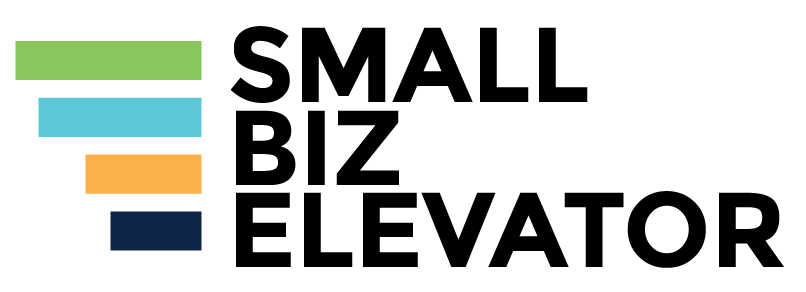Several years ago, President Obama signed the Jumpstart Our Business Startups Act (JOBS Act), which made several dramatic changes in the access to capital for small businesses. The JOBS Act actually contains several pieces of independent legislation, and perhaps the most interesting one is Section III, Crowdfunding, also called the CROWDFUND Act. Several new terms have been introduced in this piece of legislation, as well as several old ones that some people may be new to the casual reader. Once one understands these terms, it’s not hard to see why crowdfunding may be the most important change in small business and startup financing in decades.
Crowdfunding
Crowdfunding itself is not exactly new. People have been doing it for a little over 10 years. Crowdfunding is simply a way of asking for donations in an online format. There are a few large, and several smaller, online crowdfunding platforms. The major features of a crowdfunding campaign are that the fundraising organization offers “perks” in exchange for donations, and that there are goals associated with the transfer of money. Perks are typically scaled to offer increasing value for larger dollar amounts (this is very similar to the technique used in public broadcasting campaigns). There are usually no limits to how much (or little) an individual can donate. As target fundraising goals are met, the funds are released to the fundraiser and the perks are given to the donor. Typical crowdfunding raises are in the neighborhood of $5,000, but a few have exceeded $1,000,000.
Investment/Equity/Capitalization Crowdfunding
Investment crowdfunding is so new people haven’t even figured out what they are calling it yet. All three of the above terms, and possibly others, are in use, and they all refer to the same thing. Investment crowdfunding uses the crowdfunding mechanism to sell securities, usually stock. The CROWDFUND Act authorizes Crowdfunding, pending the approval of regulations that the SEC has until the end of the year to write. It will not be legal to offer securities through crowdfunding until these regulations are approved, probably early next year. Instead of making donations for perks, investors will buy equity in a company through an authorized platform. Companies can raise up to $1,000,000 per 12 month period through crowdfunding offerings.
Funding Portal
A funding portal is a new type of intermediary created by the CROWDFUND Act which facilitates crowdfunding securities transactions. All crowdfunding offerings must be made through a funding portal or broker. The funding portal/broker will conduct a certain amount of due diligence toward the issuer, list the securities being offered, and oversee the transaction and issue of stock certificates or other documentation. They must maintain an arm’s length from the participants in the transaction, acting as a neutral party who ensures that the rules are being followed. As things currently stand, none of the big brokerage houses have indicated an interest in participating in crowdfunding at this time, so we expect that most of the early activity will be with newly registered funding portals.
Accredited Investor
An accredited investor is an individual whose annual income is greater than $200,000 ($300,000 for a family) or who has a net worth of more than $1,000,000 not including primary residence. Such people are assumed to have better understanding of the risks associated with investing and therefore do not require the same level of risk factor disclosure than presumably less sophisticated investors. This is not a new term, but an important one in most non-public stock issues. Most private stock placements are restricted to a combination of accredited investors or friends and family of the issuer. Crowdfunding specifically allows sale to non-accredited investors without restriction. This alone dramatically increases the size of the potential investor pool for any new stock issue.
Investment caps
To offset the ability to raise money from non-accredited investors, the CROWDFUND Act limits the dollar amounts that an individual can invest in a single issue. Investors whose annual income or net worth is less than $100,000 can invest up to 5% of their income/net worth or $2,000 whichever is greater. Those whose net worth/annual income is $100,000 or more can invest 10% of income/net worth up to $100,000. The combination of this limit with the overall $1,000,000 limit per issue keeps crowdfunding investment fairly small by most investment standards. To a venture capital firm/fund, this is very small potatoes. It falls closer to the lower end of Angel Investment, with a much larger distribution of smaller investors.
Social Media
Social media isn’t that new, and we all know what it is. Whether we like it or not, we’re all learning to embrace it. While no mention of social media is made in the legislation, it may be the single most important thing for business owners who want to participate to understand. Crowdfunding is driven by social media networks where businesses engage with customers and potential investors and create excitement about their business. Those who do so successfully can use that network to develop potential investors and convert them into actual investors. Currently, this is a process that is more art than science, and most companies will need to partner with the best of the artists to make crowdfunding work for them.
As I become more deeply involved in the investment crowdfunding world, I’m finding more and more potential. The brief discussions above are just a starting point for understanding the many discussions that are breaking out on this topic. Entrepreneurs are already looking for ways to adapt to this new landscape and make it their own, which will make the next year an exciting time for all of us in the world of seed capitalization.
Robert Segrest
CrowdFund Resource

Robert Segrest is a founder and president of Crowdfund Resource, specializing in helping businesses understand and use investment crowdfunding. As a small business manager and consultant, Robert and his team have worked with many companies to solve their capitalization challenges. To learn more about investment crowdfunding please visit his website at http://crowdfundresource.com, or email him at robert@crowdfundresource.com.

